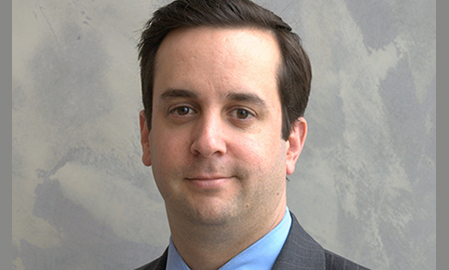One young company is betting that its Big Data platform can help alleviate what has become a big money problem.
RxAnte began in Washington, DC, in 2011. Pharmacist, health services researcher and founder Josh Benner had been studying as well as publishing on the topic of medication adherence for the bulk of his career. It wasn’t long before he realized that nonadherence represented one of the biggest opportunities to improve outcomes in the industry.
The toll of nonadherence is well-documented. The World Health Organization estimates the average nonadherence rate for chronic conditions like diabetes and high blood pressure at 50%. According to an analysis from Annals of Internal Medicine in 2012, failing to refill and take medications adds between $100 billion to $289 billion a year to the healthcare tab, among similar estimates.
Three years after its founding, RxAnte monitors eight million patients worldwide and has an office just outside the district, in McLean, VA, as well as a tech hub in Portland, ME. Earlier this month, the company was acquired by testing company Millennium Laboratories, which monitors patient medication use for HCPs treating pain, substance abuse and other disorders. Terms of the deal were not disclosed.
“We are predicting medication adherence to specific therapies over specific timeframes,” explained Matt Gagalis, RxAnte’s VP of business development. “For example, we can determine that a patient might have a 62% likelihood of being adherent to her diabetes medication by the end of the calendar year based on her RxAnte adherence score—which is created through a combination of our deep subject matter expertise, machine learning and advanced analytics.”
RxAnte primarily serves health plans, pharmacy benefit managers (PBMs), and retail pharmacy organizations. Company spokesperson Leigh Canavan says the firm also works with pharma, although she could not disclose the names of clients.
“We’ve led several engagements with pharmaceutical companies,” she noted, “including defining measures of adherence, developing predictive models to identify patients at risk of nonadherence in new or high-value therapy areas, and designing intervention programs tied to individual risk profiles.”
While knowing your target population may be half the battle, knowing when and how to execute strategies—or “interventions,” as RxAnte refers to them—are equally important. “All of our clients are deploying a number of interventions that are designed to improve outcomes. We give them a target list that indicates which patients should receive which intervention in order to optimize the effectiveness and efficiency of the outreach,” Gagalis said.
Interventions range from mail campaigns, automated phone calls, and live calls from a care manager or pharmacist, among others.
Now the company is rolling out a portal for physician practices. Called RxEffect, the cloud-based tool
is currently in 600 practices around the country, the company says, and allows doctors to see a percent of their population at risk for future nonadherence. A pay-for-performance component is being rolled out with health plans.
“Unlike other pay-for-performance programs that pay bonuses for process completion, RxEffect only pays out a performance bonus for the achievement of outcomes,” Gagalis explained, “so it requires providers to take the necessary steps to actually improve adherence for their at-risk patients.”
RxAnte’s new owner, Millennium Laboratories, assists HCPs in identifying patients who may misuse or abuse prescription drugs through certain tests, and also helps identify how they may respond to certain medications via genetic testing.
Gagalis said RxAnte will act as a wholly owned subsidiary and will operate “fairly independently,” with both companies being run by their existing leadership teams and little change planned over the short term. They do foresee synergies between the two platforms, as they both approach medication management in “complementary ways,” he said.
From the March 01, 2014 Issue of MM+M - Medical Marketing and Media








